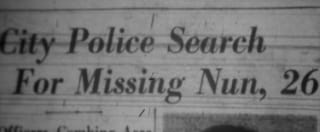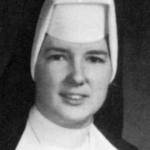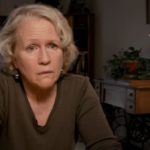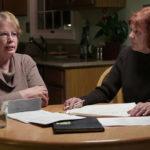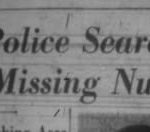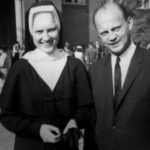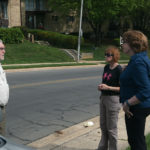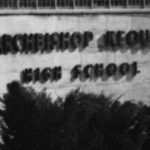There have been several documentaries and dramatisations about the shocking abuse over decades by Catholic priests of young people in their care, of the subsequent follow-ups and the eventual bringing to justice of at least some of the perpetrators, despite every effort from the church and the legal system (particularly the American system) to deny justice to the survivors. Just from memory there is Mea Maxima Culpa, Spotlight, Deliver Us From Evil, Twist Of Faith, Sex Crimes And The Vatican and The Boys Of St Vincents, quite apart from fictional accounts such as the magnificent Doubt.
The Keepers, a haunting 7-episode Netflix docuseries, adds a further sinister twist to the appalling litany of sex crimes, namely the suspected complicity of a priest in the unsolved murder of a young nun, Cathy Cesnik who had apparently threatened to go to the police with evidence of what she had heard from girls at the Keough School in Baltimore in 1969.
The series hones in on the most likely scenarios and provides a viable explanation, even if it is not proved beyond all reasonable doubt. As a drama, it has the lot: saucy personalities, a love interest, the tales of sexual abuse by many victims (female and male), the potentially linked murder of Joyce Malecki, the sudden appearance of witnesses and suspects, the pursuit of physical evidence in the absence of corroborating forensics, and a lot more besides.
The Keepers divides between background history and ongoing investigation by the survivors into the issue, their public campaign and following up of leads, in the certain knowledge that the statute of limitations and the death of the perpetrators means closure can only provide peace of mind, not the right and proper punishment of such heinous acts.
Indeed, what is best achieved is exposure of the complicity of the Catholic Church in frustrating justice while transferring the guilty party from one parish to the next over decades, as it did in many more cases. It makes you wonder whether without Church involvement and with the benefit of current police procedures and forensic techniques justice would have been obtained swiftly.
What we know is that hundreds of cases where the evidence is beyond any doubt have now been settled by the Church, which now acts as if wholly innocent and interested only in helping survivors but which went out of its way to bury the facts for decades while denying everything. Even now all the Archdiocese of Baltimore will only provide written answers, still denies all knowledge and, according to the victims, is still lying through its teeth.
At its best The Keepers provides a powerful and compelling narrative and a convincing depiction of the emotional impact of the trauma of memories from abuse at school, suppressed for decades, though also counters with the case brought by a body of psychologists that recovered memories are works of fiction. This was brought up in the defence of a civil law suit by two such victims against the senior of the accused priests, Father Joseph Maskell.
It even interviews the one man still living who allegedly participated in the murder, even though evidence is at best circumstantial and the interview rather suggests dementia had taken hold. Even without the statute of limitations, justice is hard to guarantee decades after the events, since witnesses vanish, memories are lost and the accused are no longer around. Maskell has become, in death, almost as notorious as Jimmy Savile.
While I can to some extent forgive the non-linear narrative structure, the primary weakness of the series is that it prolongs over 7 hours of TV viewing a story that could easily be told well within half the time allocated, fascinating though the stories of each survivor are in their own right. At least one friend independently suggested slimming it down to 3 or 4 episodes as the optimum solution. Much of the focus and clarity of content is lost through scenes with rambling dialogue, repetitious arguments and dull extended shots. Clearly it would not be right to reduce a complex tale to a 30-minute format, though maybe a feature length telling like Mea Maxima Culpa could have maximised the impact. Tighter editing would unquestionably have improved the end result.
That apart, The Keepers is a most convincing and spirited search for the truth and a voice for those who had harboured such appalling knowledge without ever knowing the full story. It seems unlikely now the full story will ever be known, but director Ryan White deserves full credit for his exhaustive attempt to help the victims in their eternal quest. Especially worthy of credit for her sheer courage is the lady who allegedly witnessed the dead body at the murder scene and went on to live under a cloak of anonymity as “Jane Doe” until 2001.
Included in the programme is the story of how a bill has been presented to the Maryland State Capitol no fewer than six times to extend the statute of limitations in respect of sexual abuse claims. Every time it has been killed off before coming to a vote by the leader of the House and the head of the Judiciary committee.
Even allowing for the point being confused by the length of the series, there is no doubt whatever that this is powerful television, highlighting the obstruction of justice and at least keeping alive the memory Cathy Cesnik and Joyce Malecki, even if the murderers will never end up behind bars. You cannot fail to be gripped by the case, but glad that we are so much more aware of abuse and less likely to give absolute power to people whose motives are far more corruptible than the popular conception would imagine. We all have feet of clay.

